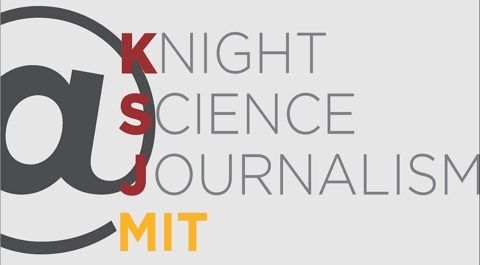 The Knight Science Journalism Fellowship Program at MIT supports a global community of dedicated and thoughtful journalists specializing in science, health, technology and environmental reporting.
The Knight Science Journalism Fellowship Program at MIT supports a global community of dedicated and thoughtful journalists specializing in science, health, technology and environmental reporting.
The program is designed to recognize journalists who demonstrate a high level of professional excellence and accomplishment as well as a long-term commitment to their craft. Journalists from all countries are encouraged to apply. Applications window is from November 15 to January 15 each year.
Fellowship Description
Every year, the Knight Science Journalism Fellowship Program at MIT offers academic-year fellowships to 10 science journalists, to give them an opportunity to explore science, technology, and the craft of journalism; to concentrate on a specialty in science; and to learn at some of the top research universities in the world. Fellows are required to audit at least one science course per semester but are otherwise encouraged to explore the wide range of offerings at MIT, Harvard, and other institutions in Cambridge and Greater Boston.
Fellows are required to complete a Cambridge, Massachusetts-based research project during the academic year. The goal is for fellows to create something that uniquely leverages their time and experiences at MIT, using the resources and connections available to them while they are here. Some element of the research project must be journalistic in nature, but it can expand beyond traditional parameters and be created in any format: long-form, story series, multimedia, video, audio, installation, etc. The project may serve as the basis of a future story or the foundation of a book proposal, or it may simply be a detailed report on an area of science. All fellows give a formal presentation on their projects at the conclusion of the fellowship year.
Benefits
Fellows of the Knight Science Journalism Fellowship Program receive a $75,000 stipend, a $3,000 relocation allowance, and other benefits, including basic health insurance for each fellow and their family.
See Also: Nieman Fellowships | Fully Funded for International Journalists, USA
Among the many Knight Fellowship programs and activities:
- Seminars: Fellows meet regularly for seminars with top researchers and media professionals.
- Field Trips: The program organizes several trips each year to locations of special interest to science and technology writers. Past destinations have included the Woods Hole Oceanographic Institution and the Marine Biological Laboratory in Woods Hole, MA, the Jackson Laboratory in Bar Harbor, ME, and the Harvard Forest in Petersham, MA.
- Digital Media Training: The number of storytelling channels open to journalists is multiplying, and we want our Fellows to return to the workforce with more technical skills than they had coming in. We offer workshops in various technologies, including mobile video, still photography, digital editing, data journalism, and podcasting.
Eligibility Criteria
To be eligible for a Knight Science Journalism Fellowship, applicants must:
- Be full-time journalists, whether on staff or freelance. Part-time writers or producers are not eligible.
- Have at least three full years of experience covering science, technology, the environment, or medicine.
- Be reporters, writers, editors, producers, illustrators, filmmakers, or photojournalists. This includes work for newspapers, magazines, television, radio, and digital media.
- Applicants must not have completed a fellowship of four months or longer during the two years prior to applying for the Knight Science Journalism Fellowship.
Also Check: Joan Shorenstein Fellowship for Studying Media, Politics and Public Policy
Application Procedure
The Knight Science Journalism Fellowship Program application is done online. Please check the official application page for further information before you apply.
Application window is November 15, to January 15, each yearly cycle.




